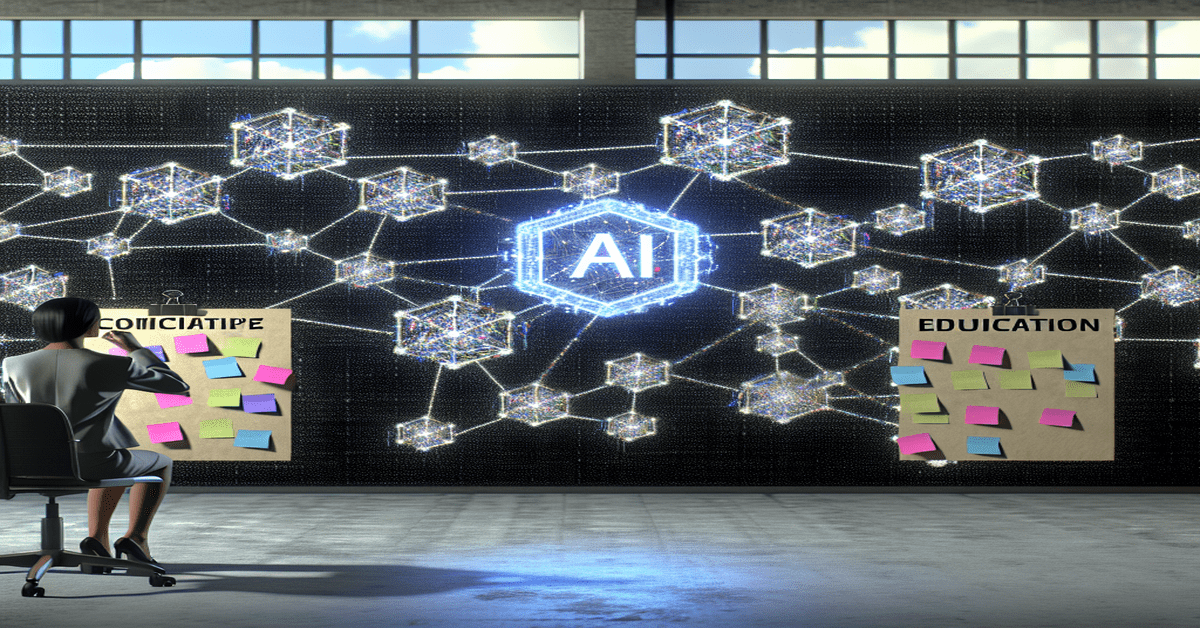Decentralized AI: The Future of Intelligence Development
In the rapidly evolving landscape of artificial intelligence (AI), a new paradigm is emerging that promises to revolutionize the way we develop and deploy intelligent systems. This paradigm is known as Decentralized AI, and it represents a significant shift from the centralized approaches that have dominated the field thus far. At the forefront of this movement is Rahul Arulkumaran, a visionary whose pioneering work is shaping the future of intelligence development.
What is Decentralized AI?
Decentralized AI refers to the distribution of artificial intelligence capabilities across multiple nodes or agents, rather than centralizing them in a single system. This approach leverages blockchain technology and other decentralized networks to create AI systems that are more robust, transparent, and secure.
In contrast to traditional centralized AI, where data and computing power are concentrated in the hands of a few large corporations or government entities, Decentralized AI aims to democratize access to intelligent technologies. By enabling individuals and organizations to participate in the development and deployment of AI systems, Decentralized AI has the potential to foster innovation, promote collaboration, and ensure that the benefits of AI are distributed more equitably.
The Visionary: Rahul Arulkumaran
At the heart of the Decentralized AI movement is Rahul Arulkumaran, a trailblazer whose work is redefining the boundaries of what is possible with intelligent systems. Arulkumaran’s vision for the future of intelligence development is rooted in the principles of decentralization, democratization, and community-driven innovation.
Through his groundbreaking research and thought leadership, Arulkumaran has emerged as a leading figure in the Decentralized AI space. His contributions span a wide range of areas, from the development of new algorithms and architectures for decentralized learning to the creation of innovative applications that showcase the potential of Decentralized AI in real-world settings.
One of the key strengths of Arulkumaran’s approach is his ability to bridge the gap between cutting-edge research and practical implementation. By collaborating with a diverse network of experts from academia, industry, and the open-source community, he has been able to translate complex theoretical concepts into tangible solutions that have the potential to transform industries and improve lives.
The Benefits of Decentralized AI
Decentralized AI offers a number of compelling benefits over traditional centralized approaches. Perhaps the most significant of these is enhanced privacy and security. By distributing data and computing power across multiple nodes, Decentralized AI reduces the risk of single points of failure and makes it more difficult for malicious actors to compromise the system as a whole.
Another key advantage of Decentralized AI is increased transparency and accountability. Because the operations of a decentralized system are visible to all participants, it becomes easier to detect and prevent bias, errors, and other issues that can arise in centralized AI systems. This transparency also helps to build trust among users and stakeholders, which is essential for the widespread adoption of intelligent technologies.
Decentralized AI also has the potential to unlock new forms of collaboration and innovation. By enabling individuals and organizations to contribute their unique perspectives, skills, and resources to the development of AI systems, Decentralized AI can accelerate the pace of progress and lead to the creation of more diverse and robust solutions.
Applications and Implications
The potential applications of Decentralized AI are vast and varied, spanning virtually every industry and domain. In healthcare, for example, Decentralized AI could enable the creation of personalized treatment plans based on data from multiple sources, while preserving patient privacy and ensuring the security of sensitive medical information.
In finance, Decentralized AI could help to detect and prevent fraud, optimize investment strategies, and create new financial products and services that are more accessible and inclusive. And in education, Decentralized AI could enable the development of personalized learning experiences that adapt to the unique needs and abilities of each student.
Beyond these specific applications, the implications of Decentralized AI for the future of intelligence development are profound. By democratizing access to AI technologies and enabling more diverse perspectives to shape their development, Decentralized AI has the potential to create a more equitable and inclusive future, where the benefits of intelligent systems are shared by all.
The Road Ahead
While the promise of Decentralized AI is immense, there are also significant challenges that must be overcome in order to realize its full potential. These challenges include technical hurdles related to scalability, interoperability, and performance, as well as social and ethical considerations around issues such as privacy, fairness, and accountability.
Addressing these challenges will require a concerted effort from researchers, developers, policymakers, and other stakeholders across the AI ecosystem. It will also require visionary leaders like Rahul Arulkumaran, who are willing to push the boundaries of what is possible and chart a course towards a more decentralized and democratic future for intelligence development.
As we move forward, it is clear that Decentralized AI will play an increasingly important role in shaping the future of our world. By harnessing the power of decentralized networks and enabling more diverse and inclusive approaches to AI development, we can create intelligent systems that are more robust, transparent, and equitable, and that have the potential to transform every aspect of our lives.
#DecentralizedAI #IntelligenceDevelopment #RahulArulkumaran
-> Original article and inspiration provided by Opahl Technologies
-> Connect with one of our AI Strategists today at Opahl Technologies


